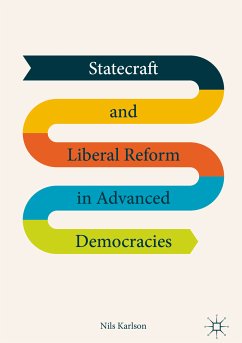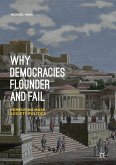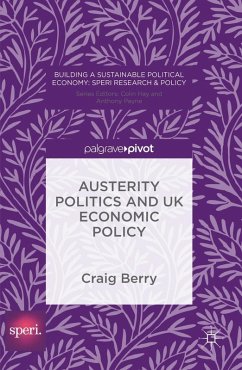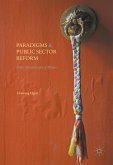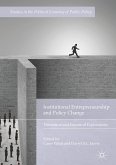The theory of modern statecraft presented here involves a combination of knowing wha
t and knowing how. It has the potential to be generally applicable in any advanced democracy with the ambition to improve its economy and society. This book is of interest for anyone who is concerned about budget deficits, slow growth, over regulation, lack of structural reforms and the rise of populism. It will appeal to scholars of political science, public policy and political economy.
Dieser Download kann aus rechtlichen Gründen nur mit Rechnungsadresse in A, B, BG, CY, CZ, D, DK, EW, E, FIN, F, GR, HR, H, IRL, I, LT, L, LR, M, NL, PL, P, R, S, SLO, SK ausgeliefert werden.
"Karlson provides a lucid inventory of the barriers to reforming the welfare state, all of which will be familiar to public-choice economists. ... Karlson has written a fine book, one that needed to be written. He has traveled far toward understanding how liberal reforms happen and thus how they might happen again." (John Samples, Cato Journal, Vol. 38 (2), 2018)
"Nils Karlson makes an important contribution to the economics of institutions by providing stimulating theoretical insights and two interesting case studies. ... this is a thought-provoking book, which I recommend to a wide audience of readers - including non-economists - and which opens new research agendas in at least three different respects." (Enrico Colombatto, The European Journal of Comparative Economics EJCEm, Vol. 15 (01), 2018)

